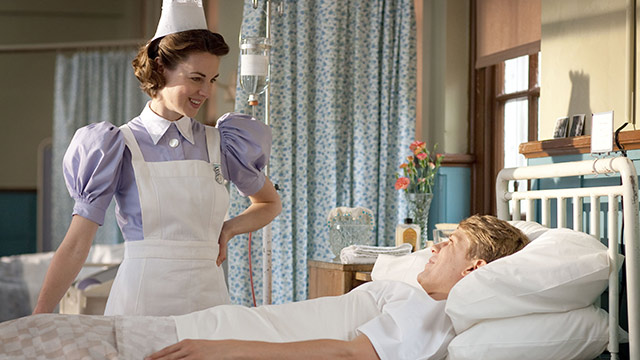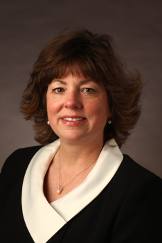
Like they did last season, we are happy to have the faculty of the Vanderbilt School of Nursing back to guest blog for us each Monday morning about the previous night’s episode of Season 2 of Call the Midwife, airing on Sundays on NPT and PBS Stations nationwide at 7:00 p.m. Central, March 31-May 19. Check in here every Monday morning for the next six weeks for historical and contemporary context on the show, and some fun discussion. SPOILER ALERT: Some may contain spoilers, so please be aware of that.
By Michelle Collins PhD, CNM
I do really enjoy the screenwriting of this series, in large part because of the masterful way stories are woven together to illustrate a particular theme. Sometimes the themes are subtle, and sometimes more overt, as in this week’s episode. The episode centered on the human bond – between the twin sisters, between the nun and her God, and between star-crossed lovers. As the narrator profoundly stated in the final minutes, “sometimes only when bonds are tested do we understand their strength. There are ties that endure for a lifetime no matter how frayed by fate. We can walk away and pretend to forget them; pain passes in the end. Or we can step into the future, blessed and stronger than before because when faced with change our love held fast and did not break. Our lives were not severed but woven anew, and our joy not halved, but doubled.”
There is inherent risk when human bonds are tested; risks that relationships will not survive, or that they will survive, but be forever altered. As we know, life and love is not without risk. Yet it is the often the fruit of the greatest risks we take in life and love that yield the greatest rewards in our lives. Not taking risks in love is always an option, of course, but one risks missing out on those experiences which enrich our lives and help us grow to our full potential as human beings. Noted author Leo Buscaglia said of this:
To love is to risk not being loved in return.
To hope is to risk pain.
To try is to risk failure, But risk must be taken,
Because the greatest hazard in life Is to risk nothing
Another interesting sidebar you may have picked up on in this episode was the treatment, or rather mistreatment, of nurses, as displayed by the surgeon, Mr. Tracy (Anthony Calf). Thank goodness nursing has come a long way since the 1950’s! Indulge me to share a few facts about nursing in the 1950’s:
- Nurses did not take blood pressures; that was considered medical practice.
- When physicians arrived on the hospital units, nurses were required to stand and give up their chairs to them, and were even expected to open doors for them.
- Nurses could not inform a patient about the medicine they were passing to them, or even tell them what their vital signs were; that was left only to the doctor to “inform” the patient. Only physicians could administer intravenous medications. Nurses were seen as subordinate to physicians, and often treated with disrespect. We’ve certainly come a long way baby!
Lastly, a few quick verbiage points that you may have picked up on just for clarification (in case they perked your ears…) What we might refer to as the head nurse or charge nurse in the US is referred to a matron of nursing in the UK. You may have also noted the fairly obnoxious surgeon being referred to as “Mr. Tracy” rather than “Dr. Tracy;” “Mr.” being the customary title for surgeons in the UK. The other British term used was in reference to the “theatre,” which is the operating room.
Michelle Collins PhD, CNM, is an Associate Professor of Nursing, Director Nurse-Midwifery Program, at Vanderbilt University School of Nursing
Missed our analysis of the Previous Season’s Episodes? Read them here.
